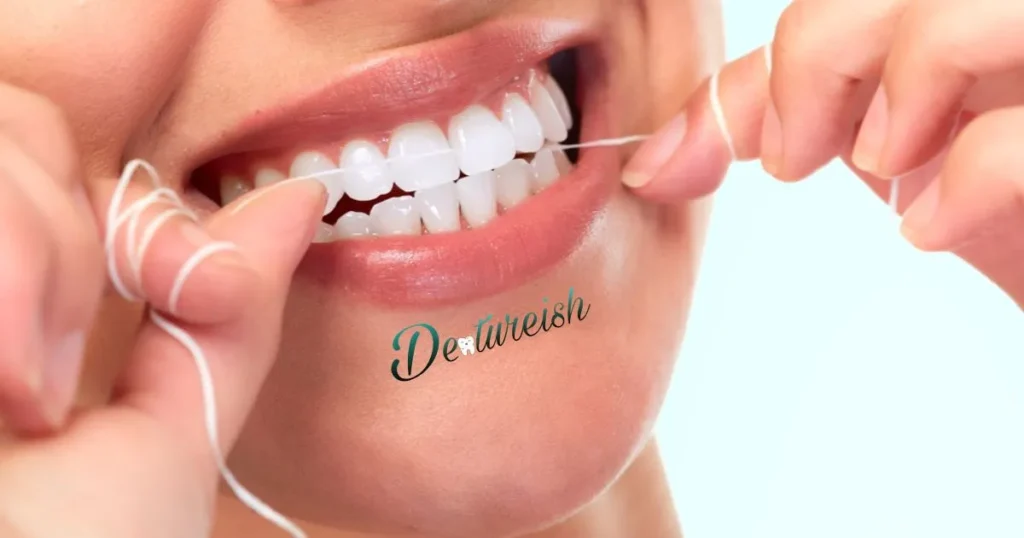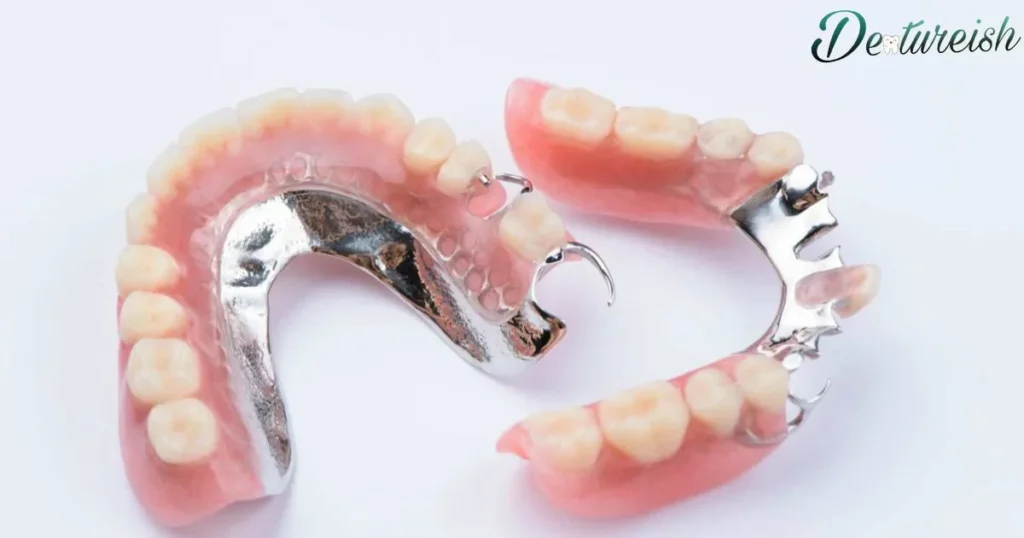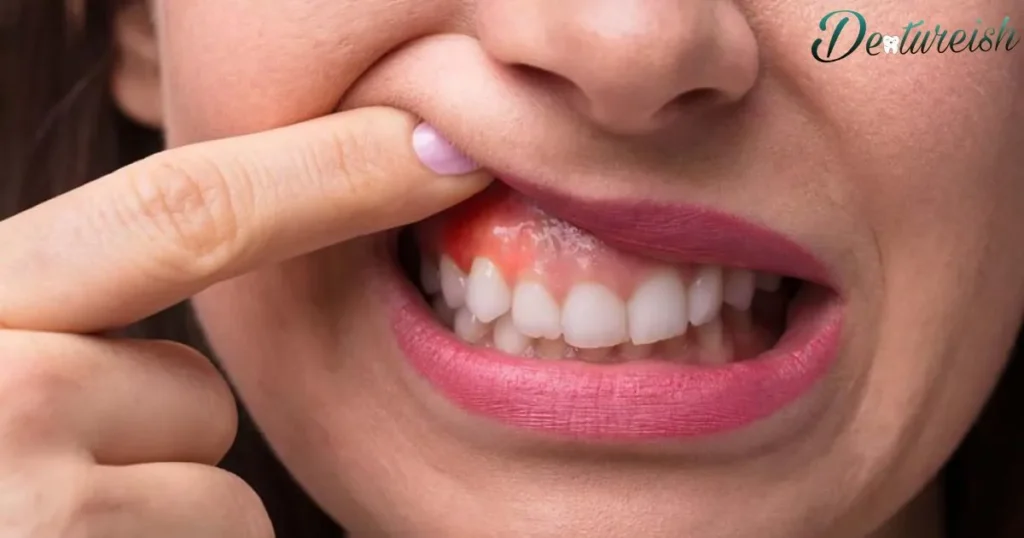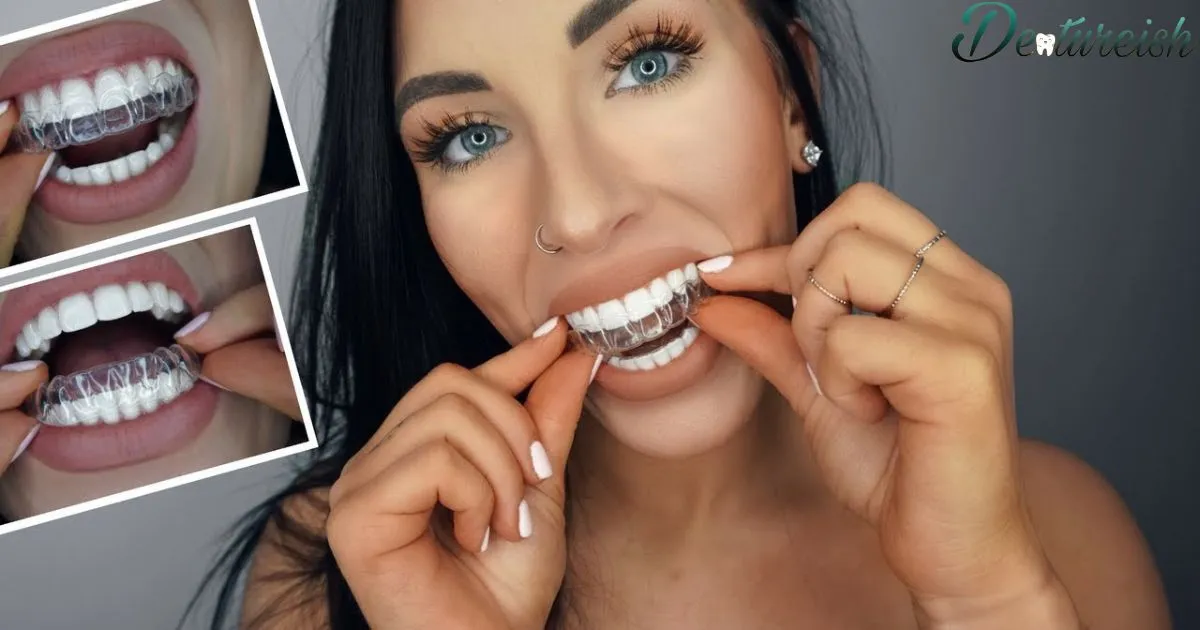False teeth, also known as dentures, are prosthetic devices made to replace missing teeth. On average, a properly cared for set of complete dentures should last 5-7 years before needing to be replaced. However, many factors influence how long false teeth actually last. Proper cleaning, storage, and care can help dentures last longer.
How Long Should False Teeth Last?. This is a common question for those wearing full or partial dentures. Knowing the expected lifespan of these dental appliances is important when considering the costs and benefits. Getting the most longevity out of your investment is ideal.
Over time, these materials can deteriorate from repeated use and exposure to foods and liquids. Regular dental visits are key for ensuring proper fit and function as the mouth naturally changes with age. With diligent oral hygiene and care, false teeth may last 7-10 years or longer before a replacement set is required. Consult your dentist to learn how to best care for your dentures.
How long can you expect denture longevity?
On average, a properly cared for set of complete dentures should last 5-7 years before needing to be replaced. However, many factors influence how long false teeth actually last. With diligent oral hygiene and care, false teeth may last 7-10 years or longer before a replacement set is required.
Consult your dentist to learn how to best care for your dentures to maximize longevity.The lifespan of partial dentures is similar to that of full dentures, ranging from 5 to 10 years typically.
Regular dental check-ups, adjustments, fitting evaluations, and proper daily cleaning play a pivotal role in extending the durability and longevity of both partial and full dentures. Material quality also impacts longevity, with high-quality porcelain, acrylic, or metal materials tending to last longer.
What is the average denture lifespan?
The average lifespan of a set of complete dentures is approximately 5-7 years with proper care and maintenance. Partial dentures tend to need replacement slightly sooner on average, but still generally last for 5 years minimum when properly maintained.
Some studies show that 50% of denture wearers still have functioning appliances after 10 years.Well-constructed dentures made from quality materials and properly cared for can potentially last for 10 years or longer.
Factors like oral changes over time and wear and tear make 5-7 years the average denture lifespan before needing replacement. Maintaining good fit and function via regular dental visits helps optimize longevity.
How do you extend the life of dentures?
Proper daily cleaning using recommended denture brushes, toothpaste, and soaking solutions will help maintain dentures and extend their working lifespan. Avoiding overly hot, sticky, or hard foods can also prevent unnecessary stress and damage.
Protecting dentures while sleeping and handling properly during removal and insertion also prevents accidental drops or fractures.Getting regular dental checkups and addressing any damaged or worn parts of the dentures promptly is key to longevity.
Use Efferdent on real teeth to maintain proper hygiene and ensure a comfortable fit, preventing potential issues caused by residue and bacteria. Regular use of Efferdent as part of your oral care routine contributes to the longevity of both natural teeth and dentures alike.
What factors shorten the lifespan of false teeth?
Habits like grinding teeth or an overly abrasive diet of hard, crunchy, sticky foods can increase wear and tear, shortening denture lifespan. Poor cleaning that allows plaque or stains to build up can damage the structure and encourage deterioration over time.
Dropping or fracturing due to improper handling can also introduce cracks that grow worse with continued use.Perhaps most impactful, oral anatomy changes like bone and gum loss inevitably alter the fit of dentures over time.
Ill-fitting dentures tend to function poorly, causing discomfort and accelerating damage. It is crucial to have fittings evaluated at least yearly as such changes can severely limit denture lifespan if unaddressed.
When is it time to replace old dentures?
It’s time to consider denture replacement when they become loose or ill-fitting due to changes in oral anatomy over time. Bone or gum loss will affect the shape and support the dentures require to function properly.
Dentures should also be replaced when they become worn, damaged, or fractured to the point of being unusable despite repair attempts.Persistent discomfort, soreness, or irritation can signal a poor fit.
Inability to chew properly, noticeable wear or deterioration, and changed facial aesthetics may also indicate replacement need. Regular dental visits help identify when denture replacement is required for proper fit and function based on your oral changes.
What impacts the durability of dentures?
Dentures are made from acrylic resin or chrome cobalt metals. Over years of use, these materials can deteriorate from exposure to food, liquids, and normal wear and tear. The longevity of dentures depends on multiple factors including oral hygiene, eating habits, storage, and maintenance.
Proper care is key for getting the most usable lifespan from dentures.Additional aspects like bruxism and fit can also reduce how long dentures last. Grinding and ill-fitting dentures cause faster deterioration.
Regular dental visits allow for checking fit and function as the mouth ages. Being aware of habits, getting adjustments, and addressing issues early helps dentures remain durable.
How does oral hygiene affect denture longevity?

Good oral hygiene is imperative for ensuring dentures last as long as possible. Daily cleaning removes plaque and food debris that can scratch surfaces or encourage infection leading to decay. Brushing natural teeth and gums around partial dentures also prevents complications.
Using recommended denture cleansers avoids damage from abrasive scrubbing. Handling dentures properly when out of the mouth and soaking as directed retains moisture and prevents warping. Stopping buildup and monitoring fit through great hygiene enables dentures to remain functional for years.
Do eating habits influence denture lifespan?
Hard, crunchy, sticky foods can dislodge or even crack dentures. Sugary items promote decay causing fungal infections under dentures. Small seeds can get lodged under them as well. Being mindful of dietary choices helps prevent damage.
Around partial dentures, chewing primarily on the natural tooth side reduces wear on materials. This allows the denture side to remain protected. Having good eating habits extends longevity by minimizing fracture, chipping, and complications from debris.
Can grinding or clenching reduce denture longevity?
Clenching or grinding dentures together applies excessive force which can crack acrylic resin bases or connectors. This habit wears down denture teeth much faster, requiring replacement sooner. It also loosens partial denture clasps reducing stability.
Using a night guard protects dentures from bruxism damage. Getting stress levels under control helps limit clenching. If a mouth guard cannot prevent fracture or wear, the patient may need implant supported dentures for durability against grinding forces. Controlling this habit preserves denture integrity.
How do proper storage and cleaning help dentures last?
Letting dentures dry out causes warping and cracking. Storing in a soak overnight or using a hydrating solution retains moisture. Dentures should be cleaned of food, plaque, and bacteria but not scrubbed harshly. Immersion-type cleaners dissolve buildup without abrasion to materials.
Hand washing promotes microscopic scratches on surfaces that harbor microbes. Denture pastes make plaque removal gentle to prevent this. Proper storage stops dehydration and cleaning removes disease-causing agents without damage. This combination keeps dentures functioning optimally for years.
Could ill-fitting dentures decrease lifespan?
Ill-fitting dentures that do not properly align with the gumline can cause problems. Dentures that are loose and do not fit snugly can rub and cause irritation. This abrasion over time can wear down denture materials faster.
Ill-fitting dentures also fail to properly distribute chewing forces, concentrating stress that leads to cracking. Getting dentures realigned and relined is crucial for both oral health and denture longevity.
Dentures require periodic evaluation to ensure proper fit as the mouth changes. Bone loss and shrinking gum tissue cause loosening, while weight loss/gain also impacts fit. Annual dental exams allow assessment of denture fit and condition, with adjustments, relines or remakes done as needed for both function and lifespan.
Do loose dentures lead to faster wear?
Loose dentures are more prone to rocking and chafing in the mouth. This repetitive motion causes faster wear as materials grind against oral tissues. Proper fit ensures even distribution of biting forces, reducing strain on materials.
With loose dentures, uneven pressures lead to stress fractures and compromise longevity.As dentures loosen they become less stable for chewing. Food particles work underneath, causing more abrasions.
Poorly-fitting dentures also collect more plaque and debris leading to gum irritation and even mouth sores. This combination of ill effects shortens overall denture lifespan. Regular dental care provides needed adjustments for continued good fit.
Can poorly aligned teeth reduce longevity?
Poorly aligned denture teeth lead to uneven wear during chewing. Concentrated biting pressures placed on fewer teeth cause materials to break down quicker. Proper alignment ensures even contact between top and bottom dentures, distributing forces for durability.
Out of alignment teeth also cause chewing difficulty and bite discomfort. Patients tend to remove and replace dentures more forcefully leading to cracking and fractures. Denture longevity relies on proper realignment over time as fit changes. Regular dental visits allow for adjustments to maintain alignment and chewing function.
When should denture fit be evaluated?
Denture fit should be evaluated at least annually at routine dental exams. Any loosening, rubbing, discomfort or chewing problems also warrant prompt evaluation. As gums recede and bone changes over time, dentures require periodic relining or rebasing to maintain snug fit.
What causes dentures to become loose over time?
Dentures become loose over time primarily due to bone resorption and changes in gum health. As bone density decreases, the foundation for dentures deteriorates leading to loosening.
Gum recession related to aging also reduces the denture’s bracing surface area. Weight loss or gain additionally impacts fit over time. Dental exams identify when relines, adjustments or remakes are needed for continued stability.
How do material choices influence denture lifespan?
5 benefits of material choices that influence denture lifespan in easy, short sentences:
- New strong plastics last longer. They resist cracks and breaks.
- Digital scans make custom-fit dentures. Better fit means longer use.
- Metals mixed with plastics are very durable. Chrome cobalt alloy is strong.
- Adding ceramic particles reinforced plastic. This prevents wear and tear.
- New high-tech materials improve chewing. This prevents damage from stress.
The key benefit is that advanced denture materials last longer before needing replacement. Choosing high-quality materials tailored to each patient extends the lifespan of dentures.
Do metal partial dentures last longer?

Metal partial dentures are widely regarded as the most durable type of removable partial denture. Cast metal frameworks distribute stress evenly and resist cracking or fracturing better than acrylic resin bases.
Studies show metal partials often continue functioning successfully for 10-15 years or longer with proper care. The increased initial cost of a metal partial is offset by its extended longevity compared to other materials.
Are acrylic or plastic dentures more durable?
Acrylic resin has been the material of choice for complete and partial denture bases for many years. While strong and biocompatible, acrylic can develop microscopic cracks and abrasions over time, requiring repair or replacement sooner than metal frameworks.
Modern advancements in durable denture plastics, like nylon thermoplastic resin, offer increased flexibility and impact resistance compared to traditional acrylics. These emerging materials may improve denture lifespans.
What new materials are extending denture lifespan?
New materials for dentures are making them last longer. Digital technology now helps make custom-fit dentures. Dentists use scans of the mouth. This makes dentures fit better so they last longer.
Stronger plastics are also used now. These plastics resist breaking better. Now metals and ceramics are mixed with plastics. This makes dentures stronger and longer-lasting.
Here is a table comparing old and new denture materials:
| Material | Old Dentures | New Dentures |
| Plastic | Weak acrylic | Strong computer-aided resins |
| Metal | None | Chrome cobalt alloy frameworks |
| Ceramic | None | Reinforcing ceramic particles |
The table shows how new denture materials like digital resins, metals, and ceramics extend how long dentures last compared to old materials. The new materials make dentures more durable.
How have digital dentures improved longevity?
The precision fit of 3D printed digital dentures offers excellent stability and retention. This reduces looseness over time compared to traditional dentures. Digital dentures made from innovative materials better withstand the intraoral environment.
Fewer repairs are needed over their lifespan. If relines or rebases become necessary, the digitally stored data allows new dentures to be quickly and accurately reprinted. This improves overall denture longevity.
What oral changes can limit denture lifespan?
As we age, our mouths naturally go through changes that can impact how long dentures last. Bone loss, receding gums, and mouth sores are common oral issues that may indicate a need for new dentures sooner than expected.
As the jawbone deteriorates and gums pull back, dentures lose the foundational support they need to fit properly and function for chewing. Ill-fitting dentures tend to wear down faster as they rub and put excess pressure on tender gum tissues.
Staying on top of oral health through regular dental visits allows early intervention when oral changes start limiting denture lifespan.Over years of denture wear, subtle changes take place in the mouth that can gradually undermine denture fit and longevity.
Jawbone density decreases over time, particularly when teeth have been missing for many years, causing less stability and retention for dentures. Gum recession due to periodontal disease or aging can leave denture flanges with an inadequate seal. Resulting looseness introduces rocking motions that accelerate wear.
How does bone loss affect denture fit and wear?
Bone loss is a natural part of aging, but it can significantly impact the longevity of dentures. As jawbone deteriorates, dentures lose the solid foundation they need for stability and good fit. Ill-fitting dentures tend to move excessively in the mouth, causing faster deterioration of denture materials from friction and abrasion.
The looser fit also reduces chewing capacity, impacting nutrition. Relining dentures can help compensate for moderate bone loss, but advanced resorption will necessitate a replacement set for proper fit and function.
As more recession occurs, dentures are left unsupported, allowing rocking motions that accelerate wear and tear. Poorly fitting dentures also tend to rub and apply damaging pressure to gum tissues. Monitoring bone loss through x-rays will indicate when bone deterioration is significantly affecting denture fit and longevity.
Can receded gums require denture replacement?
Yes, receding gums often necessitate the replacement of dentures well before their expected lifespan. Gums provide vital foundational support and retention for dentures. As gums recede due to aging or periodontal disease, the denture base and borders are left inadequately supported by fragile gum tissues.
This allows dentures to shift and rub, creating friction that accelerates wear. Relining dentures can temporarily compensate for mild gum recession, but advanced resorption will require new dentures for a proper seal and fit.
Over time, gums may recede or pull away from denture borders due to aging, oral disease, or ill-fitting dentures. As more gum tissue disappears under denture flanges, dentures lose the essential peripheral seal needed for stability and retention.
Resulting looseness introduces abrasive rocking motions and uneven biting forces that rapidly break down denture materials. Monitoring gum health and recession through regular dental visits allows early intervention with relines or a new set when needed.
Do mouth sores indicate the need for new dentures?

Yes, persistent mouth sores under dentures often signal problems with fit or the need for replacement. Sores develop from excessive denture movement, inadequate cushioning, and irritation of vulnerable gum tissues.
As dentures deteriorate or lose proper adaptation due to oral changes, painful rubbing and pressure can ulcerate gum tissues. Adjustments and soft relines may temporarily protect sore spots, but widespread sores likely indicate advanced bone loss and gum recession necessitating new dentures.The development of mouth sores under well-worn dentures is a red flag for diminished fit and the need for replacement.
Ill-fitting dentures rock and shift against tender gum tissues, causing friction irritation and pressure sores, especially along denture borders. While occasional sore spots may be relieved by small adjustments, persistent widespread ulcers indicate a lack of stability and retention from bone loss and gum recession.
What lasting habits help gums and bone support dentures?
Good oral hygiene, proper diet, regular dental visits, and avoiding harmful habits preserve gum and bone health to extend denture lifespan. Gentle twice-daily brushing maintains healthy gums that underlie well-fitting dentures. A balanced diet with calcium, vitamin D, and phosphorus fosters jawbone density to support dentures.
Regular dental cleanings and exams monitor bone loss and gum recession so relines or new dentures can address deterioration in fit. And eliminating smoking preserves bone mass. Healthy gums and strong underlying bone provide the essential support for long-lasting dentures.
Several lasting habits help maintain the gum tissues and jawbone that anchor dentures in place. Brushing gumlines and rinsing dentures prevents infection that erodes gums and bone. A healthy diet with calcium and vitamins maximizes bone density to withstand biting forces.
Avoiding smoking prevents accelerated bone loss. And regular dental visits allow early detection of tissue changes so relining or replacing ill-fitting dentures can protect vulnerable oral structures. Making oral health a priority helps stabilize gums and retain bone mass to extend the longevity of dentures.
Frequently Asked Question
What is the typical lifespan of dentures?
The average lifespan of properly cared for dentures is 5-7 years.
Do partial dentures last longer than full sets?
Yes, partial dentures generally last 10-15 years with proper care.
Can habits like grinding reduce how long dentures last?
Yes, habits like teeth grinding or clenching can accelerate wear and reduce denture longevity.
Why do dentures need to be replaced every several years?
Over years of wear, subtle changes in the mouth undermine denture fit necessitating replacement for proper function.
How can denture wearers extend the life of their appliances?
Proper daily cleaning, regular dental visits, a healthy diet, and avoiding harmful habits help dentures last longer.
Conclusion
With proper daily care and maintenance, false teeth can last 5-10 years on average. Factors like oral hygiene, chewing habits, and regular dental visits all impact longevity. Monitoring changes in gum health and bone density will indicate when it’s time to reline or replace false teeth for the best fit and function.
How Long Should False Teeth Last? The expected lifespan is 5-7 years for a well-cared for set of complete dentures or 10-15 years for partials. But diligent cleaning, proper storage, a healthy diet, regular dental exams, and avoiding harmful habits can help false teeth last longer.

